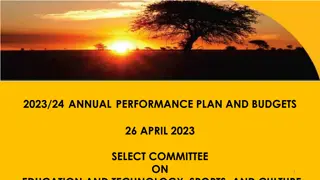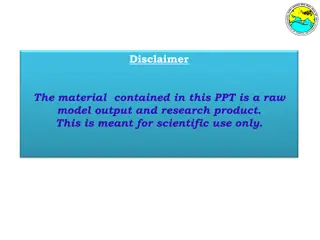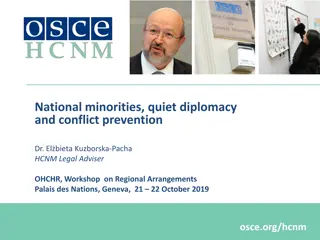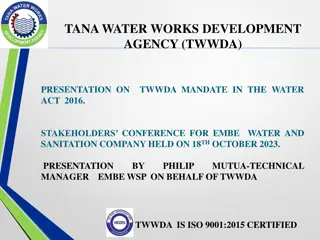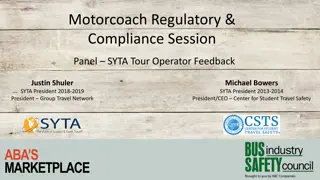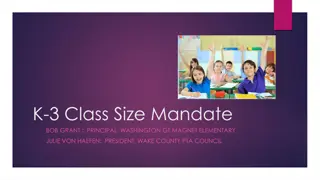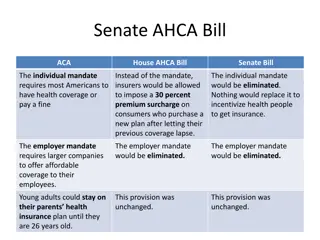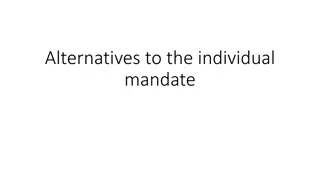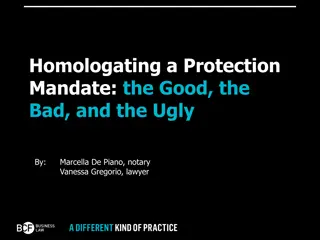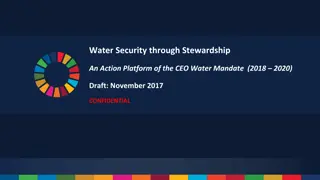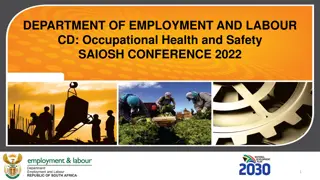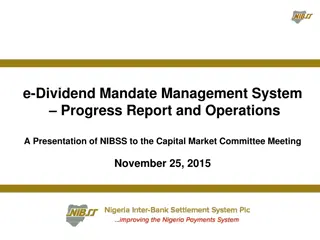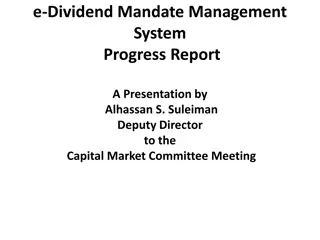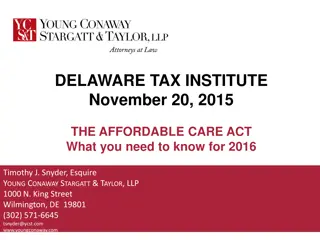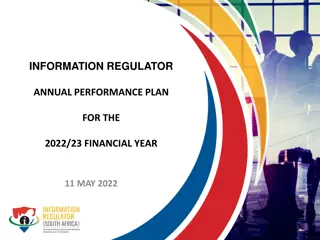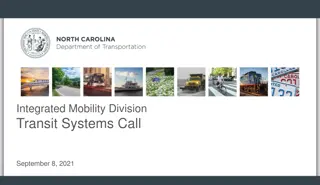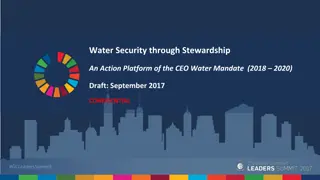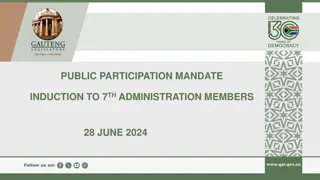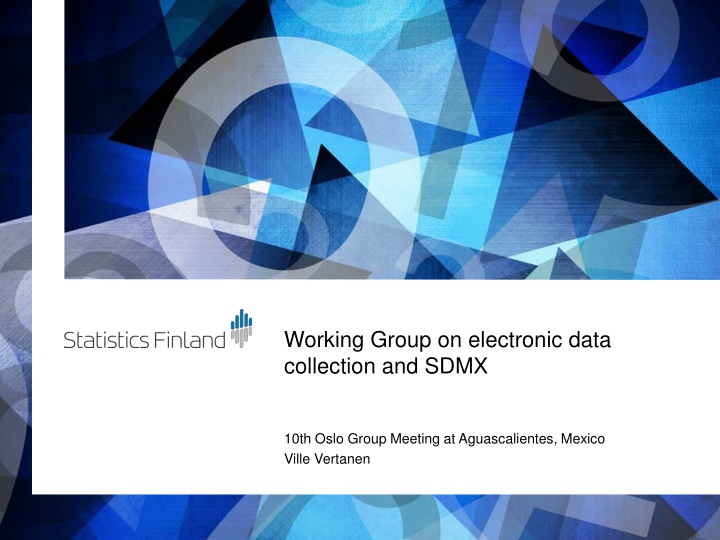
Electronic Data Collection and SDMX: Insights from Working Group Meetings
Explore the key areas of focus for the Working Group on electronic data collection and SDMX, including internet questionnaires, automated data reporting, and SDMX implementation. Learn about the benefits, challenges, and strategies discussed during the meetings held in Aguascalientes and Oslo. Discover how these initiatives aim to enhance statistical reporting and collaboration with international organizations.
Download Presentation

Please find below an Image/Link to download the presentation.
The content on the website is provided AS IS for your information and personal use only. It may not be sold, licensed, or shared on other websites without obtaining consent from the author. If you encounter any issues during the download, it is possible that the publisher has removed the file from their server.
You are allowed to download the files provided on this website for personal or commercial use, subject to the condition that they are used lawfully. All files are the property of their respective owners.
The content on the website is provided AS IS for your information and personal use only. It may not be sold, licensed, or shared on other websites without obtaining consent from the author.
E N D
Presentation Transcript
Working Group on electronic data collection and SDMX 10th Oslo Group Meeting at Aguascalientes, Mexico Ville Vertanen
Background WG on Use of Electronic Data Collection Systems and SDMX is one of the WG s that was established after 9th OG meeting at Abu Dhabi http://unstats.un.org/oslogroup/meetings/og-09/ There is growing interest in the area of electronic data collection in countries International organizations are particularly interested in the adoption of SDMX to harmonize reporting We should demonstrate the benefits, work required to implement, the costs, etc. so that others can learn To identify the challenges and advantages relating to the use of SDMX 2 11 May 2016 Ville Vertanen
Mandate Working Group on electronic data collection and SDMX will focus on following three areas at energy statistics Internet questionnaires (from business to NSO) Automated data reporting (from business to NSO) Statistical Data and Metadata Exchange, SDMX (from NSO to International organisations) 3 11 May 2016 Ville Vertanen
Work plan (1/3) Internet Questionnaires Data reporting from business to NSO Internet Questionnaire enables more efficeint statistics production Number of countries have implemented internet questionnaires, many of us have experience in this field We encourage to write country practices http://unstats.un.org/oslogroup/methodology/country- practices/ 4 11 May 2016 Ville Vertanen
Work plan (2/3) Automated data reporting Data reporting from business to NSO Possibility, that can help to reduce response burden There are also some challenges to overcome We found some other statistical areas that have implemented automated data reporting http://tilastokeskus.fi/keruu/mmtal/autom_en.html Eg. http://tilastokeskus.fi/keruu/maj/autom.html (sorry, only in Finnish) Architecture picture from 9th OG meeting 5 11 May 2016 Ville Vertanen
Work plan (3/3) Statistical Data and Metadata eXchange, SDMX (NSO to international institutions) SDMX is reporting standard (file format) for statistical reporting from NSO to international organization. In many cases replaces Excel Co-operation with International organisations Already in use in several fields in Europe (NA, BoP, etc), benefits from these fields? When there is SDMX readyness, we should find pilot countries from OG member countries Demonstrate benefits from pilot countries 6 11 May 2016 Ville Vertanen
SDMX experiences from National Accounts Data is reported from database by converting it by using linking tables. After SDMX conversion programmin is done reportoing is automated SDMX conversion programming was onetime effort, even though it was quite a big onetime effort with IT department Validation tool is automizing validation, with same time has lead to better data quality SDMX file is imported to validation tool (coming in use 2017) that validates data. Big expectations for harmonized validation Big benefit for International organization, Standard file and automated validation. Metadata for report level, timeseries, datum level Most of the benefits are for International organizations 7 11 May 2016 Ville Vertanen
Points to Consider Does the Working Group mandate cover relevant aspects? From what areas would we need more country practice templates Do we have more experiences in automated data collection or in reporting with data files / data dumps What is the status in defining SDMX at international organisations? What would be expected from Oslo Group in implementing SDMX? 8 11 May 2016 Ville Vertanen

